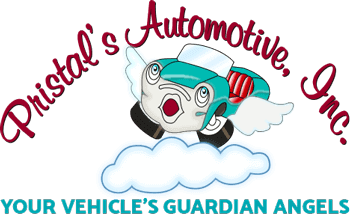As the winter months approach, it’s essential to make sure your vehicle’s air conditioning system is functioning correctly. While you may not be using your AC as frequently during the colder months, it’s still crucial to ensure it’s in good working condition for when you do need it. Here are some signs that indicate you may need auto AC repair before the winter months:
Strange Noises
If you hear strange noises coming from your AC system when you turn it on, such as squealing, grinding, or rattling, it could be a sign of a problem. These noises may indicate issues with the compressor, blower motor, or other components of the AC system that require attention from a professional.
Weak Airflow
If you notice that the airflow coming from your vents is weaker than usual, it could be a sign of a clogged air filter, a failing blower motor, or a leak in the ductwork. Weak airflow can impact the overall performance of your AC system and should be addressed promptly to prevent further damage.
Warm Air
One of the most obvious signs that your AC system needs repair is if it’s blowing warm air instead of cool air. This could be due to a refrigerant leak, a malfunctioning compressor, or a faulty thermostat. Driving with inadequate cooling can be uncomfortable, especially during the warmer winter days, so it’s essential to have this issue resolved.
Strange Smells
Unusual odors coming from your vents when you turn on the AC could indicate mold or mildew growth within the system. It could also be a sign of a clogged condensate drain or a problem with the cabin air filter. Ignoring these smells can lead to poor air quality inside your vehicle and potential health issues.
Leaking Fluids
If you notice puddles of fluid forming under your vehicle when the AC is running, it could be a refrigerant leak. Refrigerant is crucial for the operation of your AC system, and a leak can not only affect cooling performance but also harm the environment. It’s essential to have any refrigerant leaks repaired by a professional immediately.
Increased Energy Consumption
If you notice a sudden increase in fuel consumption while running your AC, it could be a sign that the system is working harder than it should due to underlying issues. An inefficient AC system not only impacts your vehicle’s performance but also your fuel economy, costing you more money in the long run.
Visual Signs of Damage
Inspecting your AC system for visual signs of damage, such as worn-out belts, cracked hoses, or damaged components, can help you identify potential issues before they escalate. Regular visual inspections can help you catch problems early on and save you from more extensive repairs down the line.
Inconsistent Cooling
If you experience inconsistent cooling in different areas of your vehicle or at different times, it could be a sign of a failing AC system. This could be caused by a variety of issues, such as a malfunctioning compressor, a refrigerant leak, or a clogged air filter. Addressing these inconsistencies early on can help prevent total AC system failure.
High Humidity Levels
If you notice higher humidity levels inside your vehicle when the AC is running, it could be a sign of a malfunctioning AC system. The AC system not only cools the air but also dehumidifies it to provide a comfortable driving experience. High humidity levels can lead to foggy windows, musty odors, and overall discomfort.
Age of the AC System
Lastly, if your vehicle’s AC system is older and has not been serviced in a while, it’s a good idea to have it inspected before the winter months. Over time, AC systems can wear out, lose efficiency, and develop issues that require professional attention. Regular maintenance and timely repairs can help prolong the life of your AC system and keep it running smoothly.
Final Thoughts
Being aware of these signs can help you identify when your auto AC system needs repair before the winter months arrive. Addressing these issues promptly can save you time, money, and discomfort down the line. If you notice any of these signs in your vehicle, it’s recommended to consult with a professional auto technician to diagnose the problem and recommend the necessary repairs.
